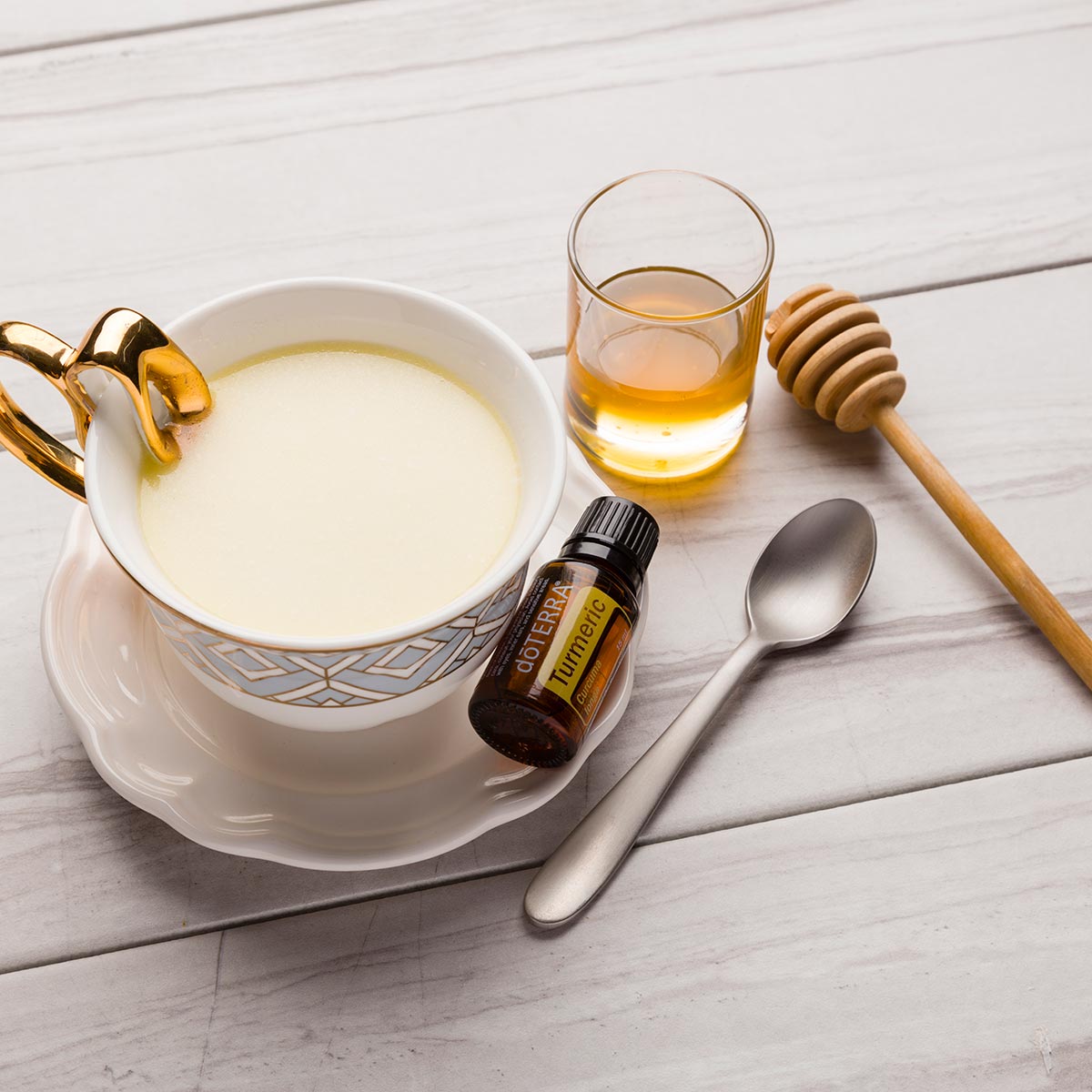Origin: a Latin derivative
meaning "Gift of the Earth."
- Shop
-
Our Story
- View Our Story Home
- Who We Are. . . .
- What We Do. . . .
- Why We Do It. . . .
-
dōTERRA[doh-teh-ruh]
Discover Solutions: Turmeric
Turmeric Essential Oil
Curcuma longa
Turmeric is an aromatic plant in the ginger family that has been used for centuries in the traditional health practices of China, India, and Sri Lanka. Rich in antioxidants, Turmeric essential oil supports the metabolism and the immune system.* It is also emotionally uplifting.





Usage Tips:
- Take internally for soothing benefits that promote a positive immune response.*
- Take 1–2 drops daily in a veggie capsule to help enhance cellular antioxidant enzymes, and support healthy nervous system and cellular function.*
- Use Turmeric on the skin as a spot treatment or an all-over face mask to help reduce the appearance of blemishes or for a healthy-looking overall glow.
- After strenuous activity, apply Turmeric topically to targeted areas for a soothing experience.
- As metabolic support, use Turmeric when trying to get back on track.*
- To improve mood and promote positivity, diffuse Turmeric or put a drop or two into your hand and inhale.
Learn More
What Is Turmeric?
Turmeric is a flowering herb related to ginger with fibrous roots and a savory flavor. Grown throughout Southeast Asia, turmeric is known worldwide as the spice that gives curry seasoning its color and distinctive flavor. The root is also used as a natural yellow dye. The rhizomes and tubers of this plant have been used in holistic Ayurveda health practices for their powerful benefits for nearly 4,000 years. Turmeric has also been used historically in China and Sri Lanka.

What Is Turmeric Oil Good For?
Recent scientific attention on curcumin, a chemical constituent of turmeric root, has rekindled interest in turmeric oil’s health benefits. Curcumin is a powerful antioxidant, and Turmeric essential oil has been shown to help increase curcumin potency and absorption.* Turmeric also contains the chemical components ar-Turmerone and Turmerone. These chemical constituents are known for their nervous system benefits.*
Turmeric is a powerful essential oil. When taken internally, it offers daily antioxidant support and helps support a healthy nervous system, cellular function, and immune response.* It also helps support healthy glucose and lipid metabolism, and healthy circulation.* When inhaled, Turmeric uplifts mood and emotions.
Video disabled by your privacy settings


Blog Articles:
Also Found In:
Video disabled by your privacy settings
Video disabled by your privacy settings


